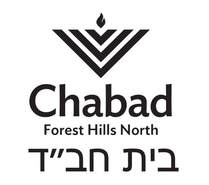|
Question:
Hi Rabbi Mendy, What's the rule for checking tzitzit to be kosher? I washed some of mine and there may be loose knots etc. Thank you! Answer: There are a number of laws involved. But for starters see if all of the 4 sides ends still have 2 knots and then tighten them while saying "Lshem Mitzvat Tzitzit". As well make sure all sides have 8 strings. If any of this is missing let me know. When washing tzitzit the best way is to tie the strings all together in a knot that can be undone. Put it in a the bag with holes that is usually used for sensitive materials. You will see how when it comes out it stays pretty good for the most part.
1 Comment
Question:
1. Can I do second morning hand washing in the kitchen sink? 2. Can I use any towel to hold the cup, for example, kitchen towel that we normally use to dry hands with? Thanks. Answer: Yes the second washing is not important by your bed or right when you get up. As well the washing should not be done in a bathroom. After you are all dressed and ready to go you go to the kitchen and take the cup with towel and wash a second time with a bracha. The towel can be any towel that is present and clean for wiping hands even if used prior for regular drying. QUESTION:
Hi Rabbi Hecht, So I have a question for you. I used to think that upon awakening, after saying mode ani, one washes hands by pouring water on each hand 3 times (right left right left right left) and saying netilat yadayim. I read on chabad.org that one shouldn't say netilat yadaim right away. It said that one should wash hands without bracha, rinse face and mouth, use the restroom, dress, after this wash hands again and only then say netilat yadaim. Is my understanding correct? Thanks. ANSWER: Hi Alla, Correct, There are 2 washings and the second one needs a blessing only. The second washing besides being with a bracha of Netilat Yadayim also needs to be like the washing of hands for bread. Not in the way that we pour 3 on one consecutively and 3 on other, but that we may not put our hands on the actual wet cup while washing but with a towel, being that the impure water of the cup (either from our wet hands not fully washed or from random water on the cup) spreads impurity and will make your hands in an impure status once again. When all hands are washed with the second washing then we say the bracha thereafter. The first washing upon awaking in the morning we are not concerned of that impurity. The washing can be done freely without using a towel to hold cup being that it is a different impurity we are removing unlike the second one that is similar to washing for bread. |
Rabbi Mendy HechtChabad Rabbi, Educator and Outreach Director of Chabad of Forest Hills North. ArchivesCategories |
ADDRESS110-40 70th Road, Forest Hills NY 11375
|
Telephone347-642-7166
|
|

 RSS Feed
RSS Feed
